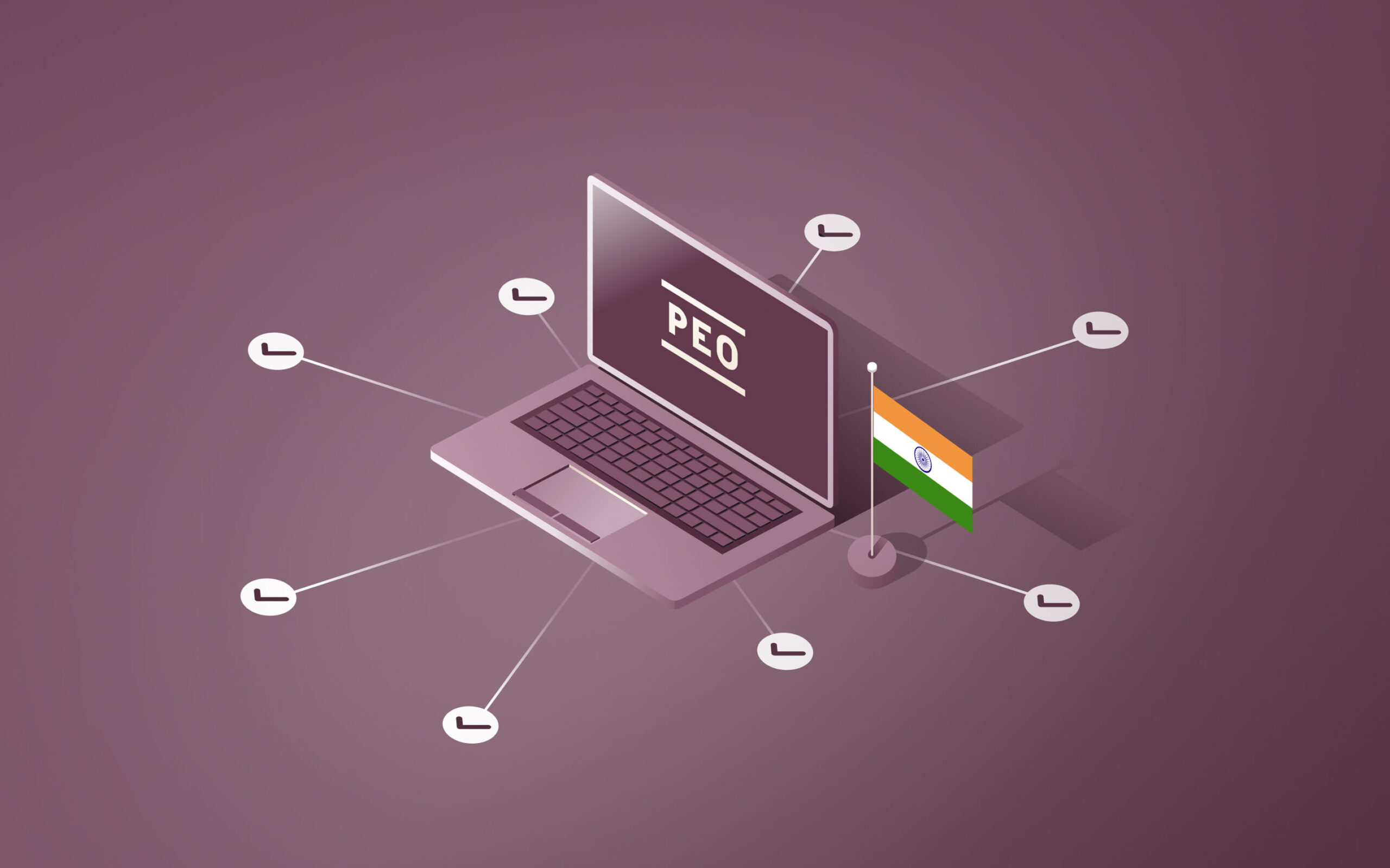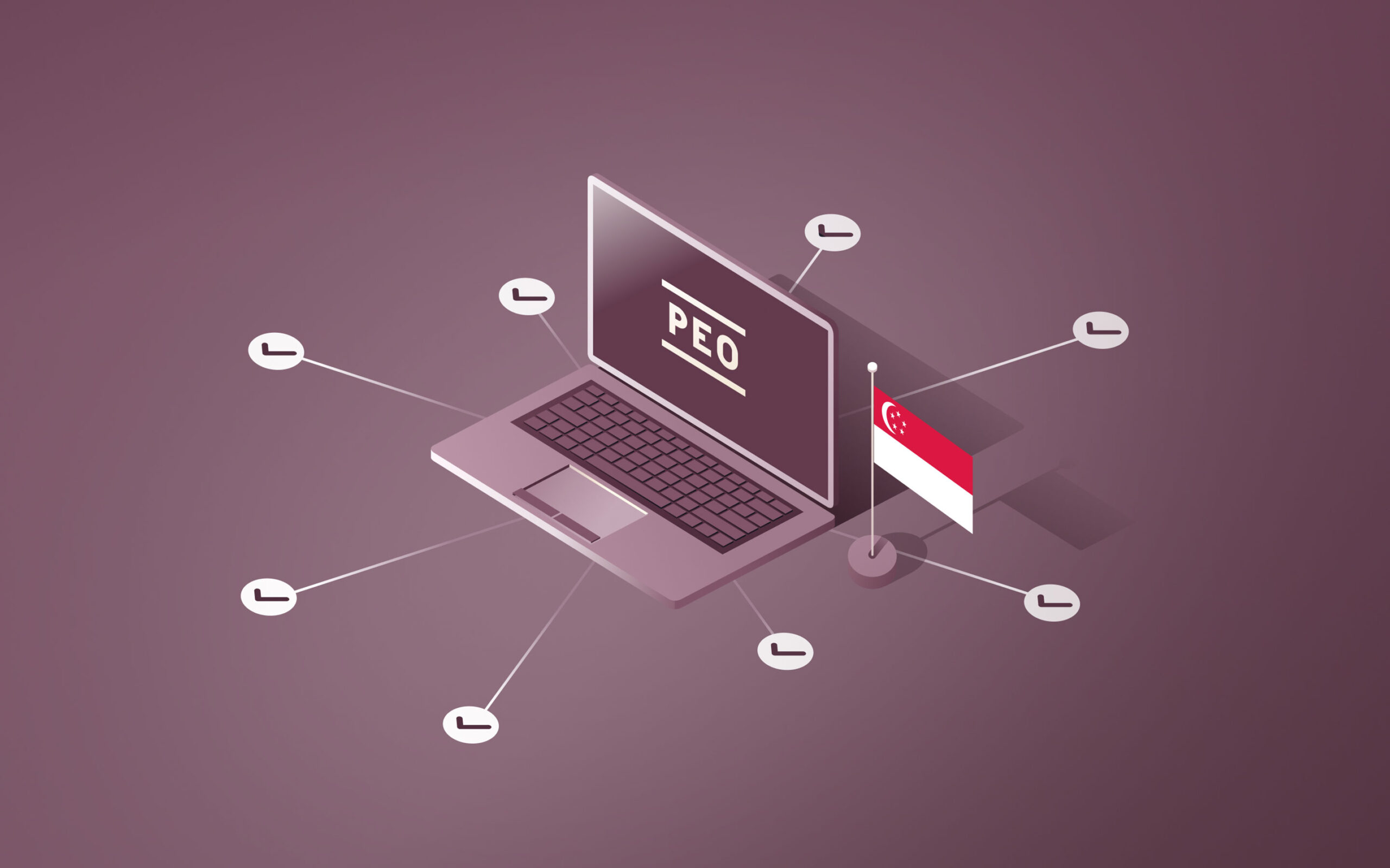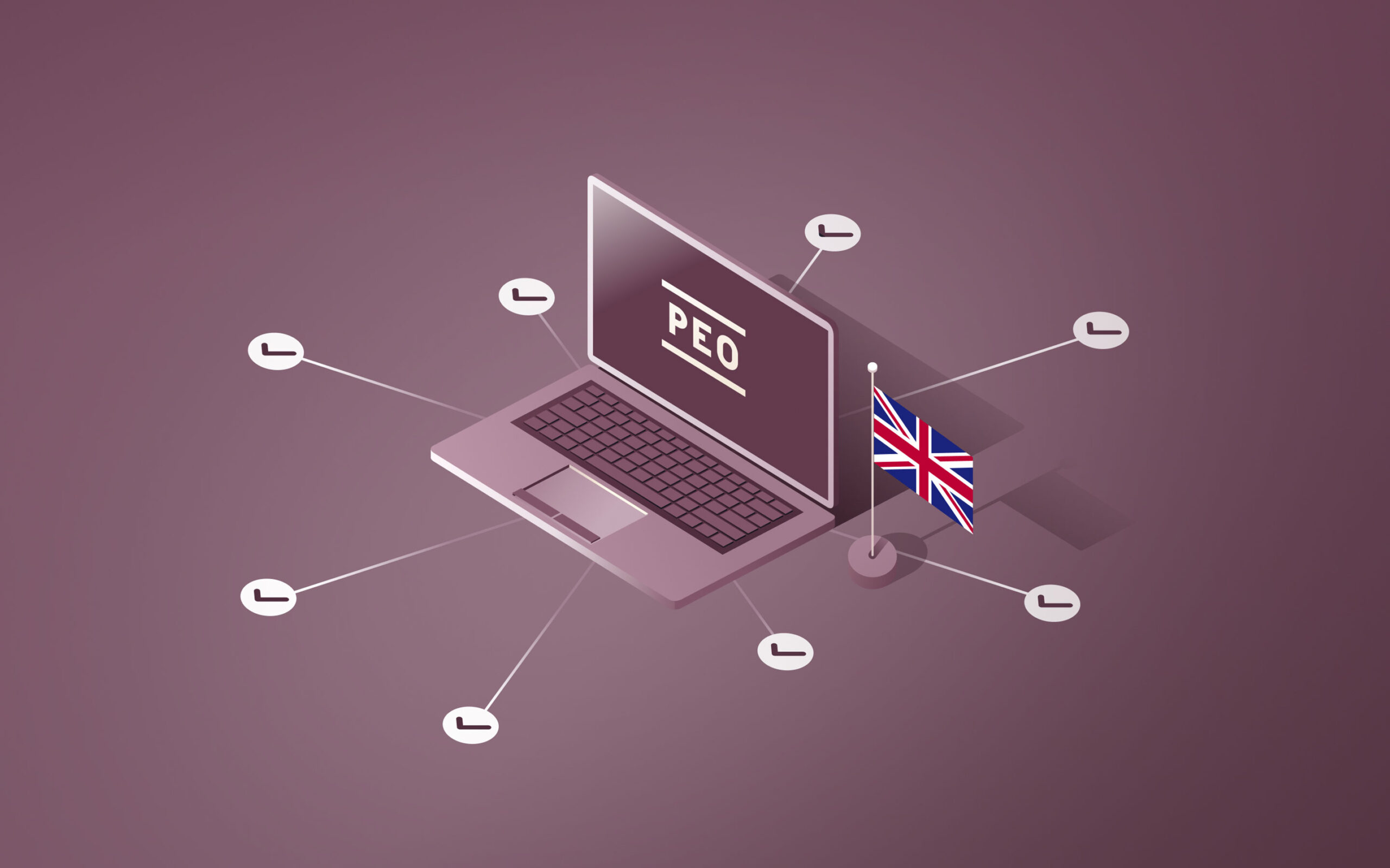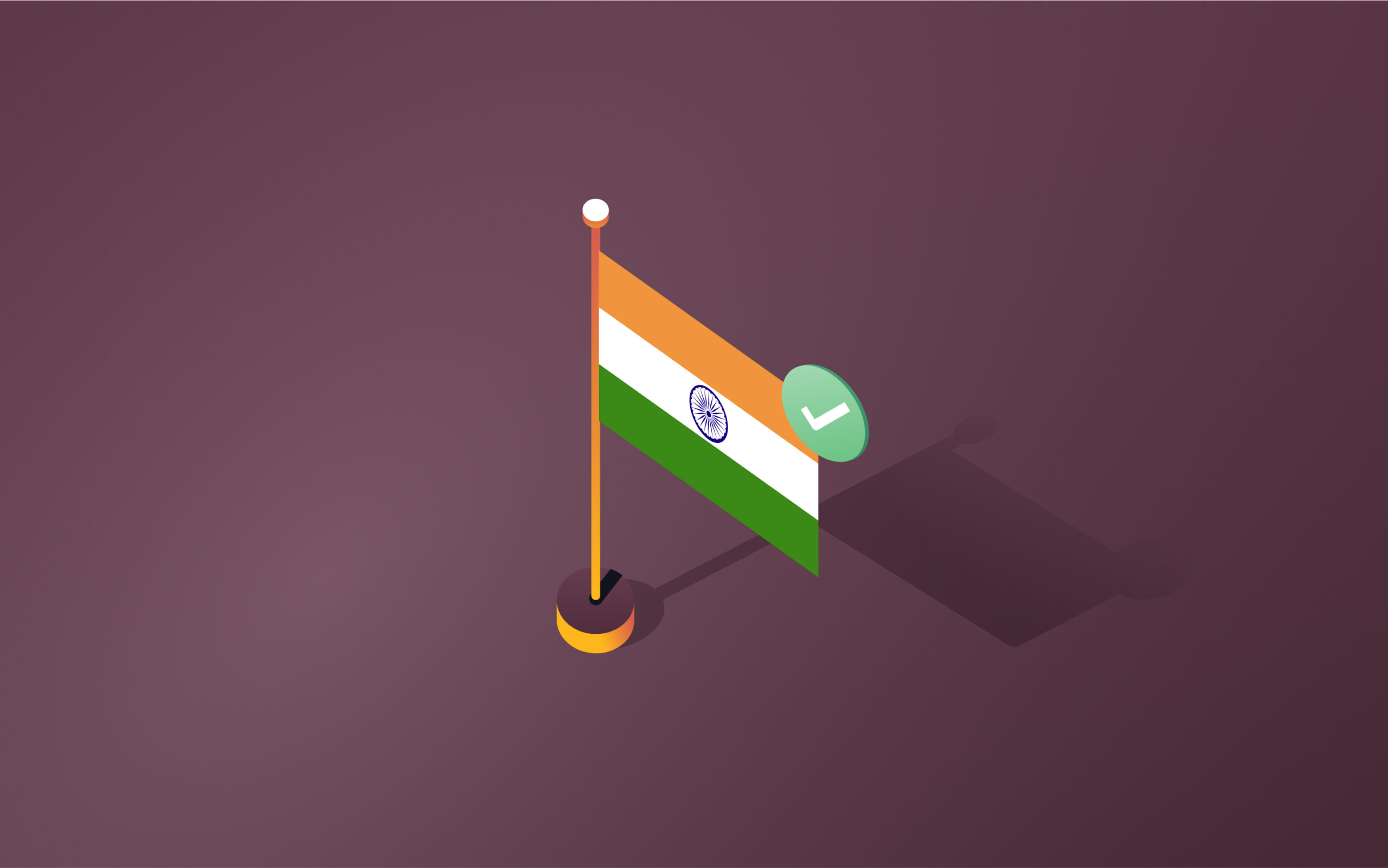Considering a PEO in India? Here’s everything you need to know

As one of the world's largest economies, India is attractive to companies looking to grow their global workforce. However, expanding your business into India—or even just hiring there—comes with challenges, such as navigating legal compliance with employment laws, tax regulations, and more.
Luckily, some of the complexity of hiring employees in India can be simplified by partnering with an international Professional Employer Organisation (PEO). Another benefit? By partnering with a global PEO (also called an EOR), businesses can typically bypass one of the most complex, time-consuming parts of hiring in a new country: establishing a local legal entity.
Here's everything you need to know about using a PEO in India.
What is a PEO?
A Professional Employer Organization (PEO) is an organization that helps other businesses with administrative HR tasks, such as payroll management, tax filing, and regulatory compliance. The PEO and its client company typically enter into a co-employment relationship, meaning they share employer responsibilities for the client company’s workforce in the country where the PEO is engaged. In co-employment partnerships, the PEO takes on administrative, employment-related work on the company’s behalf, which frees up the client company to focus on strategic work.
This type of PEO service provider is most common in the US, where co-employment traditionally exists under the country’s labor laws—though there are limited examples of co-employment in other countries, like Canada. Still, the terms PEO, international PEO, global PEO, and Employer of Record (EOR) are often used interchangeably, even in countries where co-employment—and thus, the traditional PEO model—doesn’t exist. Often, when employers refer to a PEO to support their global expansion efforts without forming a local entity in a new country, what they’re really talking about is an EOR.
PEO vs. international PEO vs. EOR
Despite frequently being used interchangeably in global expansion and hiring contexts, PEO, international PEO, global PEO, and EOR are, for the most part, distinct terms that represent different service models.
A PEO operates under a co-employment model, which is most common in the US. Companies expanding globally can partner with a PEO to hire and pay employees in countries where PEOs operate. However, to do so, they typically need to establish a local business entity to satisfy co-employment requirements. PEOs aren’t available in India—while some businesses and employers use the term PEO in India (or advertise Indian PEOs), they’re generally referring to an EOR.
An EOR may also be referred to as an international PEO or a global PEO (because many employers around the world are more familiar with the term “PEO”). EORs provide HR solutions to businesses, similar to PEOs—but they do so by becoming the full legal employer of your international employees, including handling all the legal responsibilities like compliance with local labor laws, tax regulations, and benefits administration.
That means that when you partner with an EOR to hire employees in a new country, you don’t need to establish a local entity—the EOR acts as your partner to make sure your employment practices meet local laws. In countries like India, this means you can focus on your day-to-day work and big-picture, core business decisions while the EOR handles the legal complexities that come with international employment.
The bottom line: Think of the differences between a PEO and an EOR this way: A PEO streamlines human resources work for its clients by co-employing their workers. An EOR acts as the full legal employer to its clients’ workforce.
Why use a global PEO (EOR) to hire in India?
While there are many reasons to expand your business into India by hiring employees there, foreign businesses have limited options when it comes to how they can actually do so:
Setting up your own legal entity: Complex and time-consuming
Setting up a legal entity in India is a time-consuming process that requires a deep understanding of local employment laws and regulations. Consulting with local experts is crucial to avoid running afoul of legal requirements—but can be costly.
Initial steps include:
- Registering a company name and business structure
- Opening a bank account
- Paying registration fees
- Covering legal and administrative expenses
This approach gives your business full control as an Indian employer, but it requires time, money, and effort—and your business assumes more risk that comes from trying to navigate India’s often complex and fast-changing labyrinth of labor and employment laws on your own.
Using a global PEO (EOR): Faster, simpler, and less risky
Partnering with a global PEO (EOR) allows you to hire, manage, and pay employees in India without setting up a local entity first. This has a number of benefits:
- It’s faster. Partnering with a global PEO company allows you to start hiring in India almost immediately, instead of waiting weeks or months while going through the lengthy process of setting up your business entity.
- It’s less complex. The global PEO handles many of the legal and administrative complexities of your new Indian operation, from payroll processing to benefits administration and compliance with local laws.
- It helps mitigate risk to your business. Speaking of compliance, working with a global PEO helps protect your business from potential legal issues that can arise from global expansion, since the EOR assumes much of the compliance responsibility related to labor and employment law in the new country.
With the EOR handling so much of the administrative work on your organization’s behalf, you’re free to focus on your core business activities and strategic, value-adding work.
What does an international PEO (EOR) do?
International PEO (EOR) services can vary from one company to another, but they all offer a range of HR management services that streamline and automate different aspects of global employment. For instance, Indian international PEO services include:
Employee recruiting and onboarding
A global PEO can help with talent acquisition and compliantly onboarding new hires in India, including:
- Executing locally compliant employment contracts
- Collecting any necessary documents
- Setting up payroll and benefits enrollment
This can be especially helpful, since a positive employee onboarding experience can lead to increased retention levels.
Payroll management
Payroll processing in a foreign country can be especially complex, since it requires navigating unfamiliar tax systems and other regulations. An EOR can help by:
- Calculating wages, tax deductions, and other withholdings
- Setting up tax accounts, calculating payroll taxes, and making payments to the correct tax agencies by the correct deadlines on your company’s behalf
- Generating payroll reports as needed
Benefits administration
Offering competitive employee benefits is crucial to attracting and retaining top talent. An EOR can help by:
- Providing access to private health insurance and other top benefits
- Managing enrollment in benefits plans
- Administering statutory benefits required under Indian labor law, such as provident funds
Compliance support
One of the most valuable services a global PEO (EOR) offers is compliance support, helping make sure your business operations stay on the right side of all Indian employment laws. This includes:
- Staying up-to-date with changes in labor and employment laws and regulations
- Making sure your employees receive statutory benefits, like leave entitlements and workers’ compensation coverage
- Advising your organization on compliance issues, from notice periods to best practices for managing global remote teams.
HR outsourcing
When your business outsources day-to-day HR services to an EOR, it gets time back for your in-house team to focus on strategic work. Meanwhile, the EOR acts like an external HR department, providing services such as:
- HR policy development, from writing employee handbooks to drafting leave policies
- Handling disputes and other employee relations issues
- Providing ongoing HR support, especially when it comes to local guidance and expertise
What are the benefits of using an Indian EOR?
EORs help companies grow their workforce with less hassle by taking over daunting legal and administrative tasks. Some key benefits of working with an Indian EOR include:
Reduced compliance risk
EORs specialize in compliance and risk management. While noncompliance with employment and labor laws can result in fines, legal action, and other penalties, partnering with an EOR helps reduce the risk by keeping you up-to-date with the latest regulations, localizing your employment documents, advising on best practices to avoid legal disputes, and more.
Faster market entry
Establishing a local entity in India can take months. But with an EOR, you can start hiring in new markets like India almost immediately. It also helps you spend less time on administrative work, like recruiting and onboarding, and focus on your core business activities sooner.
Cost savings
Setting up a local entity is also expensive; companies must consider registration fees, administrative expenses, and legal costs when considering establishing a legal entity in India. An EOR can be a more cost-effective option, allowing you to save on overhead costs and allocate your resources more efficiently as you expand internationally.
How to choose an international PEO (EOR)
When choosing an international PEO for your business, these are some of the factors you may want to consider:
- Service offerings: Look for an international PEO (EOR) that offers services that suit your business needs. Ensure the PEO has experience in your industry.
- Pricing: Choose an international PEO (EOR) that fits your budget, including in the future as your business scales.
- Technology: Look for an international PEO (EOR) that offers a modern technology platform that’s easy to use and won’t create a learning curve for your team. It’s also important to consider how it will integrate with the rest of your tech stack.
- Reputation: What others say about an international PEO (EOR) is important; look for a tool that’s well-regarded among your peers or in your industry.
Best global PEOs (EORs) for hiring in India
Many different EORs offer services in India. Below, find five top options and learn about the key features they offer
Rippling
Rippling EOR offers global HR, finance, and IT all in one place—plus every app in Rippling is built on a single source truth for employee data, so when you're ready to scale up and establish your own local entity, transitioning your employees to your own entity takes just minutes. See why Rippling was ranked the #1 Employer of Record service in 2023.
Key features:
- Onboard international employees and independent contractors in 90 seconds
- Pay workers in their local currency in days instead of weeks and without waiting on transfers or conversions
- Automatically file and pay taxes globally
- Streamline and sync all your HR data with payroll, including hours, time off, deductions, and more
- Design worldwide and country-specific policies for employee benefits, leave, and more
- Automate your global compliance work
- Report on all your employee data across the world in one place
- Manage human resources, IT, and finance in one unified system for global employment
Papaya Global
Papaya Global is made for large enterprises, and offers tools for hiring, onboarding, workforce management, multi-currency payments, and benefits administration.
Key features:
- Automated payroll
- Safe, simple, and fast global payments (in local currency or crypto)
- Integrations with HRIS, expense management, time and attendance, ERP, and financial software
- Dedicated customer success representative
Deel
Deel is a household name in the EOR industry helping businesses hire globally without setting up a local entity.
Key features:
- Onboarding and offboarding
- App management
- Compliance management
- Streamlined payroll
- Integrations with other HR platforms
Remote
Remote offers a modern EOR platform geared toward startups—particularly remote teams and employers of remote employees.
Key features:
- Payroll with no interchange fees
- Benefits management
- IP protection
- Self-service onboarding
Oyster HR
Oyster HR offers an EOR with tools for hiring, compliance, payroll, and benefits support for companies expanding around the world.
Key features:
- Document management
- Global payments in local currencies
- Localized benefits packages
- Dedicated customer service for enterprise users
Hire in India quickly and compliantly with Rippling
Rippling helps you manage your entire workforce—in India and around the world—in one unified platform.
With Rippling EOR, you can:
- Onboard in minutes. Hire and onboard Canadian employees to maximize productivity on day one. Rippling handles everything from benefits enrollment to assigning required training.
- Pay locally in days—not weeks. Pay all of your employees in Canada—and around the world without delay. Rippling does the calculations and money movement for you. You’ll be free to focus on what matters.
- Automate global compliance. Double-checking compliance risks takes time. Rippling runs securely in the background, continuously flagging potential risks.
- Unify HR, IT, and finance. Data entry and duplicate systems waste time. Every team has one source of employee data, so speedy automation can take on manual work.
Frequently asked questions about India EORs
What’s the difference between a PEO and an EOR?
A PEO offers HR services in a limited number of countries by entering into a co-employment relationship with its client companies and sharing employment responsibilities with them. Typically, this model requires both the PEO and the client company to have a legal business entity in the country.
An EOR offers similar HR services, but not through co-employment; instead, it becomes the full legal employer of the client company’s workforce in a country. The EOR takes on all employer responsibilities, often including payroll, benefits administration, compliance with local labor and employment laws, and tax obligations. This means the client company can hire and pay employees in the country without establishing their own local entity. EORs are sometimes called global PEOs or international PEOs.
This blog is based on information available to Rippling as of November 1, 2024.
Disclaimer: Rippling and its affiliates do not provide tax, accounting, or legal advice. This material has been prepared for informational purposes only, and is not intended to provide or be relied on for tax, accounting, or legal advice. You should consult your own tax, accounting, and legal advisors before engaging in any related activities or transactions.










